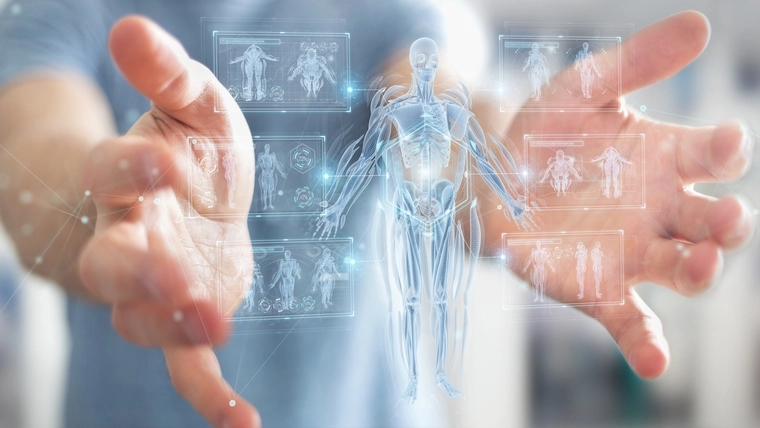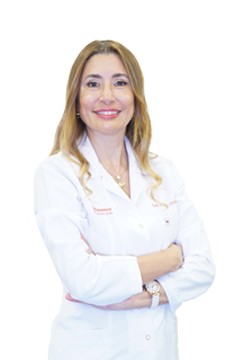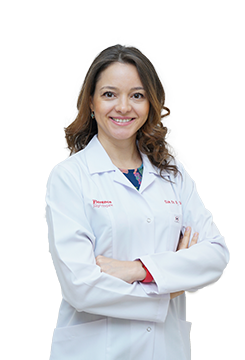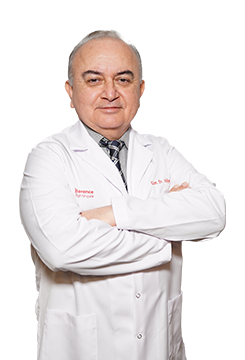
What is a Check-Up and Wellness Center?
Check-up and Healthy Living Centers are centers that aim to regularly monitor the health status of individuals and diagnose possible diseases early. Check-ups performed in these centers provide a comprehensive health screening and evaluate the general health status of individuals. Healthy living centers offer nutrition, exercise and lifestyle recommendations that individuals need to live a healthier life.
About Check-Up and Wellness Center
Check-up and Wellness Centers are facilities equipped with the most advanced technologies offered by modern medicine. In these centers, detailed health checks are performed by specialist doctors and health professionals. Check-up programs are planned specifically for the individual, taking into account factors such as age, gender, family history and lifestyle. Wellness centers offer various wellness programs to protect and improve the health of individuals.
What happens at the Check-Up and Wellness Center?
Various medical tests and evaluations are performed at the Check-up and Wellness Centers. These include blood tests, urine tests, ECG, chest X-ray, ultrasound and other imaging techniques. In addition, health services such as nutrition and diet counseling, exercise programs, stress management and lifestyle changes are also offered. All of these services are performed to evaluate the general health status of individuals and to detect potential health problems at an early stage.
What's Included in the Check-Up Package?
Check-up packages are designed to include various tests and examinations to evaluate the general health status of individuals and to diagnose potential health problems early.
Basic check-up packages usually include the following tests and assessments:- Complete Blood Count: A test to determine the number of red and white blood cells and platelets in the body. It helps detect anemia, infection or other blood-related diseases.
- Cholesterol: Measures blood cholesterol levels and assesses the risk of cardiovascular disease.
- Sugar: Diabetes or prediabetes conditions are detected with a fasting blood sugar test.
- Liver Function Tests: Provide information about the health status of the liver.
- Kidney Function Tests: Show how well the kidneys are working.
- Urinalysis: Provides information about the condition of the kidneys, urinary tract and general metabolism. It detects conditions such as urinary tract infections, kidney diseases and diabetes.
- ECG (Electrocardiogram): Provides information about heart rhythm and heart health by measuring the electrical activity of the heart. It is used in the early diagnosis of heart attack, arrhythmia and other heart diseases.
- Chest X-ray: An imaging test used to evaluate the condition of the lungs. It is used to detect lung infections, tuberculosis, lung cancer and other lung diseases.
- General Physical Examination: This is a general health check performed by a doctor. Body mass index (BMI), blood pressure, pulse and general physical appearance are evaluated. This examination helps to determine general health status as well as early detection of possible health problems.
What Tests Are Performed in Addition to Basic Check-Up Tests?
In addition to basic check-up tests, more detailed and specific tests can be performed on individuals based on their health status and risk factors. These additional tests are determined based on factors such as individuals' age, gender, family health history and lifestyle.
Here are some tests that can be done in addition to basic check-up tests:- Hormone Tests: Thyroid function tests, sex hormones (estrogen, testosterone) and other tests that evaluate hormonal balance. These tests are used to detect thyroid disease, menopause and other hormone-related problems.
- Vitamin and Mineral Levels: Tests that measure levels of vitamin D, vitamin B12, iron, and other important vitamins and minerals. These tests are important for identifying nutritional deficiencies and related health problems.
- Whole Body MRI or CT Scans: Provide detailed examination of all organs in the body. Used in the early diagnosis of cancer, tumors, abnormalities in internal organs and other serious health problems.
- Mammography and Breast Ultrasound: These tests, which are used especially in breast cancer screening for women, are performed to detect abnormalities in breast tissue.
- Colonoscopy and Endoscopy: These methods are used to examine the digestive system organs and to diagnose colon cancer, polyps, ulcers and other digestive system diseases.
- Cardiac Stress Tests: These are tests performed to evaluate heart function. They measure the heart's response to stress from exercise or medication. They are helpful in diagnosing coronary artery disease and other cardiac problems.
- Bone Density Measurement: A test that measures bone density to detect osteoporosis and other bone diseases. It is especially recommended for postmenopausal women and older individuals.
- Eye and Hearing Tests: These tests evaluate vision and hearing abilities and provide information about eye and ear health. They are used in the early diagnosis of problems such as glaucoma, cataracts, and hearing loss.
- Genetic Tests: These tests are performed for individuals with a family history of genetic diseases and determine the carrier status and risk of genetic diseases. They are important in the risk assessment of cancer, cardiac diseases and other genetic diseases.
- Spirometry and Other Respiratory Tests: These tests evaluate lung function and are used to detect asthma, chronic obstructive pulmonary disease (COPD) and other respiratory diseases.
These additional tests are performed to evaluate the health status of individuals in more detail and to detect potential health problems at an earlier stage. The doctor determines which tests should be performed based on the individual's age, gender, health history and risk factors.
What are Special Check-up Programs?
Special check-up programs are designed by taking into consideration factors such as individuals' age, gender, health history and lifestyle.
For example:- Gynecological check-up programs for women
- Prostate health check-up programs for men
- Heart health check-up programs
- Diabetes risk assessment programs
- Cancer screening programs
These programs are planned to address the specific health needs of individuals and include more comprehensive testing and evaluations.
What Aspects of People Are Taken into Account in the Personal Health Analysis Program?
In personalized health analysis programs, the health status of individuals is evaluated in a multi-faceted manner.
Factors taken into consideration include:- Family health history
- Personal health history
- Lifestyle and habits (nutrition, exercise, smoking, alcohol use)
- Stress levels and mental health status
- Working conditions and environmental factors
As a result of these evaluations, individual health recommendations and treatment plans are created.
When Should You Apply to the Check-up and Wellness Center?
Regular visits to Check-up and Wellness Centers are important in terms of maintaining a healthy life and detecting potential health problems at an early stage. It is generally recommended to have a check-up once a year. However, individuals with certain risk factors may need to have check-ups at more frequent intervals. It is also important to have a check-up when you feel tired, weak or stressed, when you experience sudden changes such as weight loss or weight gain, and for people with serious health problems in your family.












